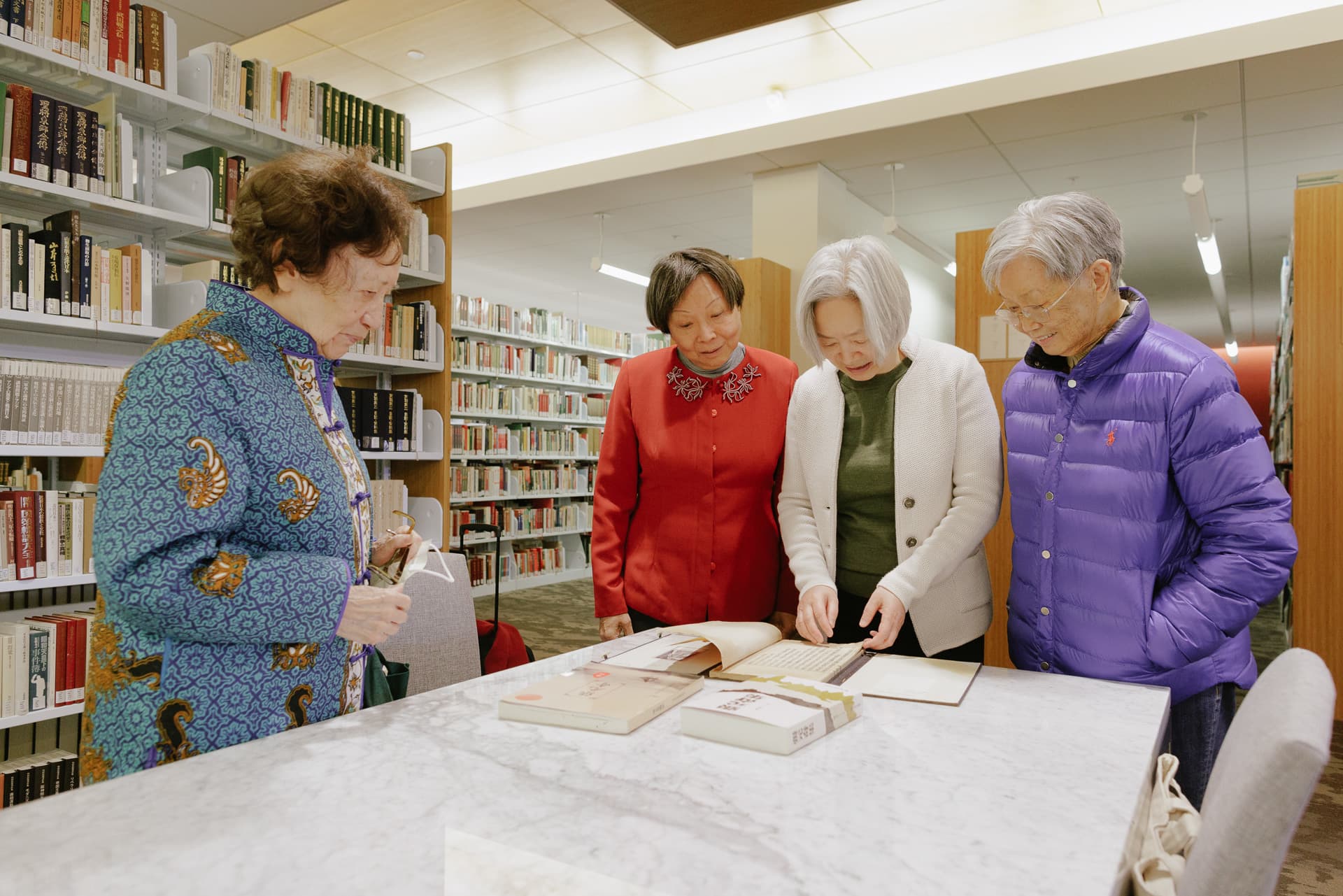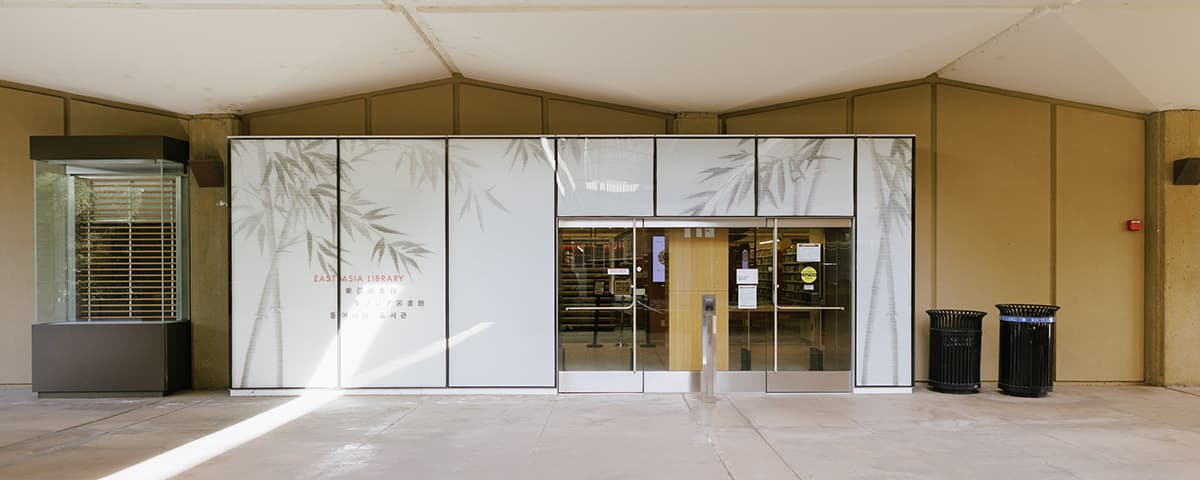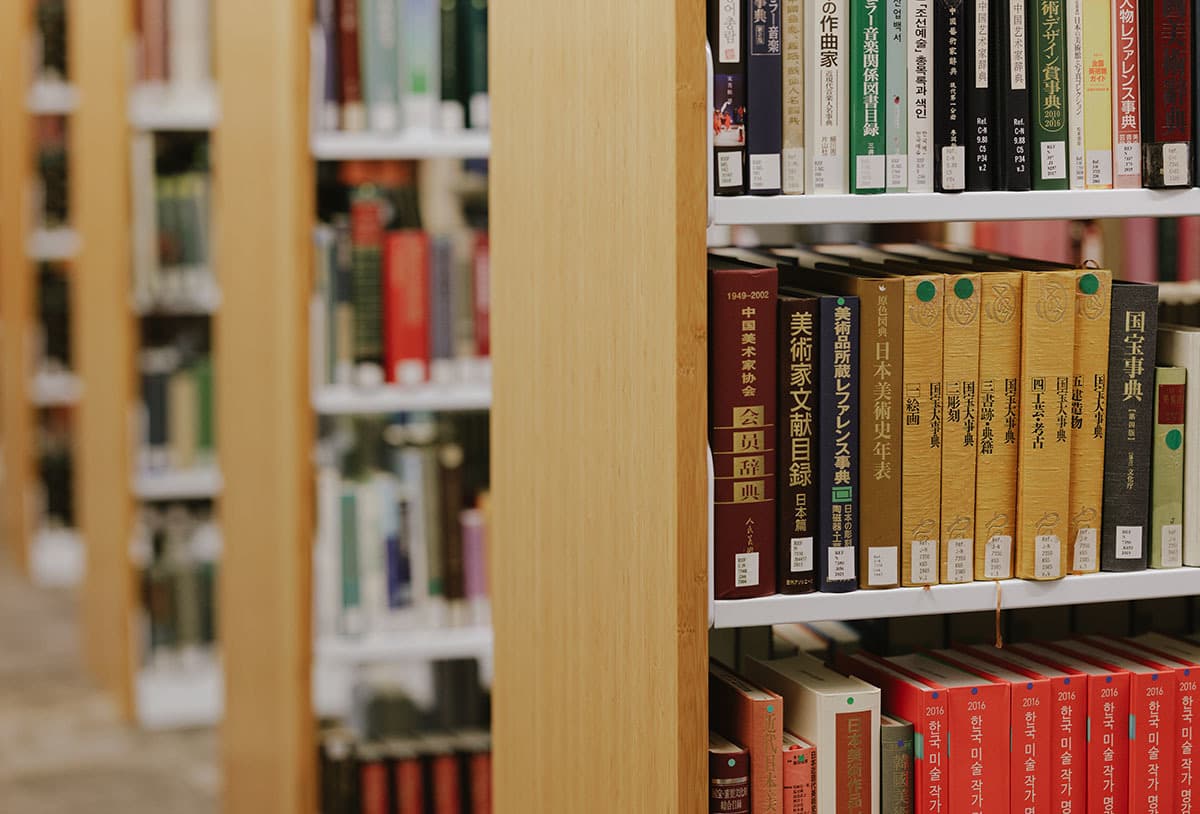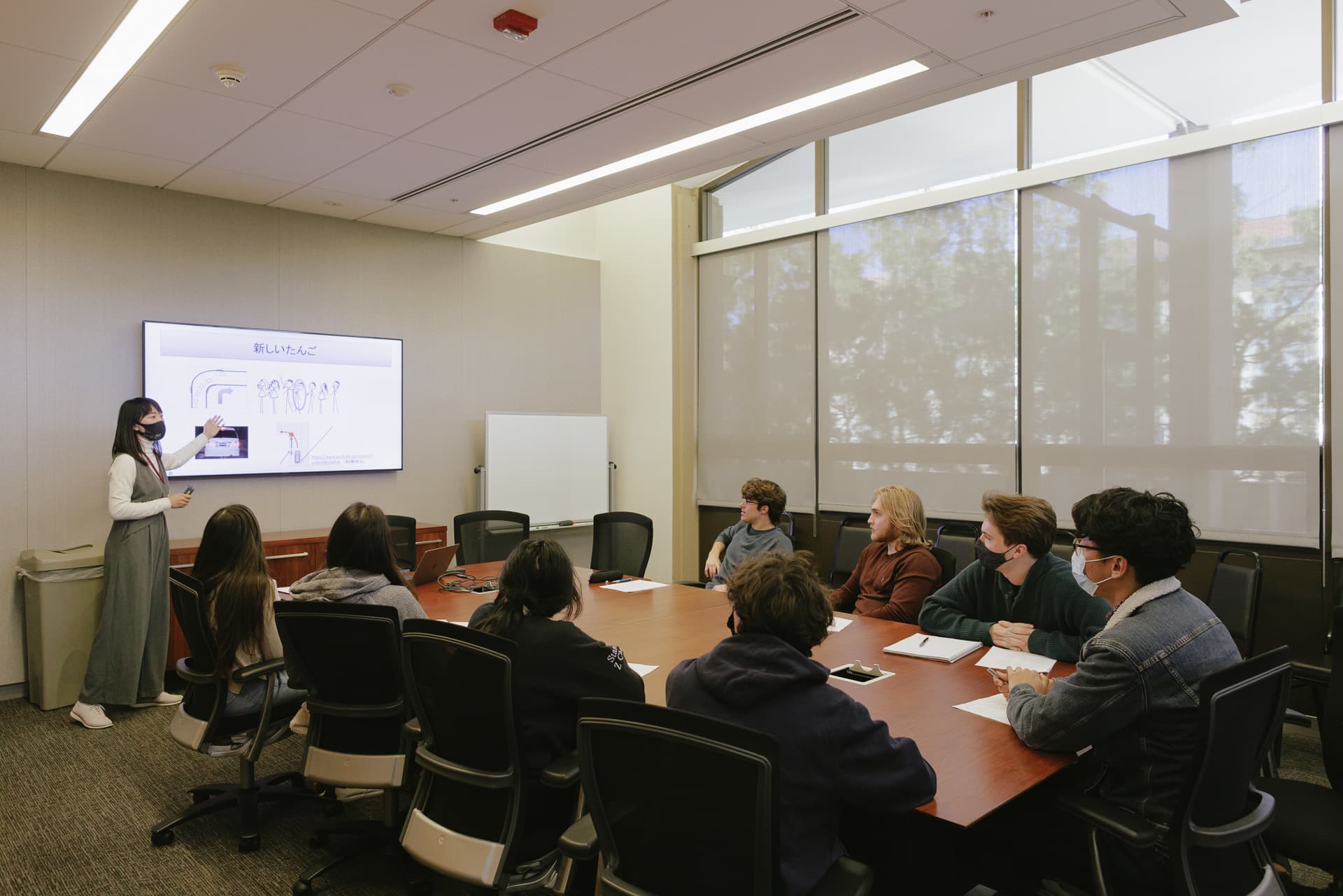East Asia Library
About us
The East Asia Library is the primary location for Stanford's extensive Chinese, Japanese, and Korean collections. Stanford University offered its first courses on East Asia and related subjects in 1906. The Hoover Institution began collecting Chinese- and Japanese-language materials in 1945, and these materials were combined in 1961 to form the East Asian Collection. In 2001, the Hoover Institution's East Asian Collection was integrated into Stanford Libraries' holdings and the East Asia Library was established in the J. Henry Meyer Memorial Library building. The library began to collect Korean materials shortly afterward, in 2005. When Meyer Library was closed in 2014, the East Asia Library moved to its current location in the Lathrop Library building.
The East Asia Library's collections comprise over 780,000 print volumes in Chinese, Japanese, and Korean languages, housed at both the main East Asia Library and the Stanford Auxiliary Library (SAL3). Additionally, users can access more than 800,000 volumes of online Asian-language books and journals through SearchWorks, the Libraries' catalog. Our collections also include archives and special collections, government documents, media, newspapers, and other periodicals. In addition to our print and online collections, the East Asia Library provides a range of services and resources, including communal study spaces, private group study rooms, seminar rooms, rotating exhibitions, printing and scanning equipment, and more. Scroll down to learn more about our collections, our space, our staff, and the services that we provide.
Using the library
Reserve seminar rooms
The East Asia Library has three seminar rooms that faculty, students, and staff can reserve for classes, lectures, conferences, and other public events.
Reserve group study rooms
Our group study rooms, located on the third floor, can accommodate between four and ten people. Groups of two or more may reserve these rooms for up to four hours.

Special Collections
The East Asia Library holds a vast array of special collection materials in Chinese, Japanese, and Korean, ranging from thirteenth-century scrolls to contemporary ephemera. Discover unique resources within the East Asia Library's Special Collections and learn how to access the reading room.
Students and scholars from outside of Stanford should contact the staff with inquiries before they make their plans. Let us know what you are interested in.
Research support
Guides
- Chinese electronic resources
- Chinese news
- Find Chinese language materials in SearchWorks
- Guide to Chinese special collections at the East Asia Library
- Japanese studies
- Digital humanities resources for Japanese studies
- Korean e-resources
- East Asian studies (Western languages)
- The Thomas S. Mullaney East Asian Information Technology History Collection
Meet the staff
 Schedule an appointment for Charles Fosselman
Schedule an appointment for Charles FosselmanCharles Fosselman
Access & Digital Information Services Librarian, East Asia Library



Joshua Capitanio
Curator for East & Southeast Asian Studies and Religious Studies Collections, East Asia Library
News
East Asia Library Exhibits Contemporary Artworks in the Tradition of Korean Literati Painting
ArticleNovember 19, 2024- May 28, 2024
- May 26, 2021
Events
There are no upcoming events. Please check back regularly for updates.
Accessibility
The East Asia Library is accessible to people with limited mobility. The library is located on the second floor of the Lathrop Library building, and accessible parking spaces can be found nearby on Memorial Drive. Patrons can reach the main East Asia Library entrance from an elevator located on the ground floor of Lathrop Library. Inside the library, an elevator is available that services all floors. The front entrance to the library is power equipped and the restrooms are accessible. Staff are available to help retrieve items located on upper and lower shelves, and users who require assistance may inquire at the circulation desk. For other accommodation needs, please call the circulation desk at 650-725-3435.






